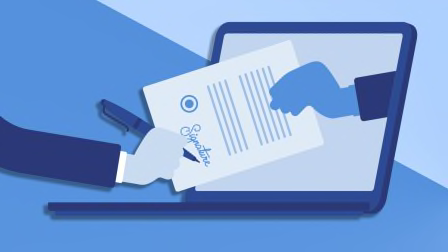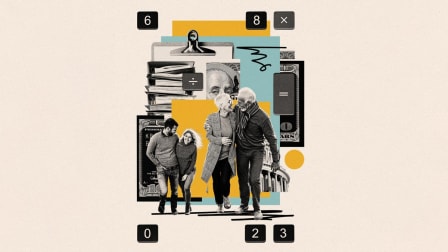Prevent a Health Crisis From Becoming a Financial Catastrophe
A power of attorney, healthcare proxy, and living will can protect you and your family

It’s a crucial question confronting many Americans during the COVID-19 pandemic: What if an illness or accident leaves you unable to manage your financial affairs or tell your doctors how you’d like to be treated?
For your loved ones to act on your behalf in a health emergency, three key documents must be in place: a financial power of attorney, healthcare proxy, and living will. Think of this paperwork as a financial “Open, sesame!”
Without these documents, your nearest and dearest may be shut out of decision-making conversations with doctors or lack the means to pay your mortgage without going through time-consuming and stressful court proceedings. With those documents, they can make sure your finances stay healthy as you recover.
Financial Power of Attorney: Paying the Bills
One thing you don’t want in a healthcare crisis is to find that your finances are a mess after you get better.
A financial power of attorney gives the person you designate—your agent—the legal authority to tap your assets to take care of important money management tasks, such as paying your bills and mortgage, filing your taxes, and handling transactions with your bank and brokerage.
You can give your agent as much or as little power as you wish, For example, you could empower someone to pay your mortgage and household bills for six months while you recover from an illness.
A financial power of attorney can be drafted so that it goes into effect as soon as you sign it. Many couples have an active financial power of attorney for each other in case something happens to one of them. If that’s your choice, be sure to specify that you want the power of attorney to be “durable,” otherwise the authority will automatically end if you become incapacitated—exactly when your spouse needs it.
You can also specify that you want to maintain control over your affairs until a doctor certifies that you have become incapacitated. This “springing” durable power of attorney—so-called because it springs into effect only under certain circumstances—can be reassuring if you prefer to be completely in charge.
Bear in mind, obtaining certification of incapacity may be challenging for your loved ones in the event of an emergency, says Shirley Whitenack, an estate planning attorney in Florham Park, N.J., and past president of the National Academy of Elder Law Attorneys.
Healthcare Proxy: Acting on Your Wishes
With the healthcare industry’s emphasis on patient privacy, it is critical to appoint a healthcare proxy. Also known as a durable power of attorney for healthcare or, less commonly, a medical power of attorney, this directive appoints a proxy to oversee your medical care and make healthcare decisions for you if you are too ill or injured to speak for yourself.
A healthcare proxy affects your finances by permitting or declining what can be very costly forms of treatment. She can also make choices— such as where you do rehab—that can help you achieve a full recovery.
“It’s critical to have a healthcare proxy, even for married couples,” Whitenack says. That’s because the HIPAA (Health Insurance Portability and Accountability Act) Privacy Rule prevents medical professionals from sharing information or allowing you to implement a loved one’s wishes without that piece of paper.
You might think your spouse automatically has that the right to weigh in on healthcare decisions, but not all states grant that authority, and without a proxy in place, the wishes of other family members may hold sway with your doctors.
The proxy also gives someone who’s not your spouse access to the information they need to make medical decisions on your behalf. That can be helpful for the spouse in stressful situations.
Living Will: Explaining What You Want
To make your wishes clear, you need a third legal document: a healthcare directive, also called an advance directive or a living will. This is where you articulate how far you want the doctors to go in preserving or prolonging your life.
For example, do you want cardiopulmonary resuscitation (CPR) or other extraordinary measures? Do you want to be intubated to assist in breathing or nutrition? Or would you prefer only palliative care to decrease pain and suffering?
The proxy and the living will depend on each other. “The healthcare proxy gives you access to information, but it doesn’t tell you what your loved one wants to happen, while the healthcare directive doesn’t do any good unless you have the proxy,” Whitenack says.
It can be difficult to talk about these topics, but do it anyway. “The COVID-19 crisis has given us many examples of people who fell ill too quickly to express their healthcare wishes,” Whitenack says. “You can’t figure this stuff out when you’re in the middle of an emergency—it’s too late.”




















